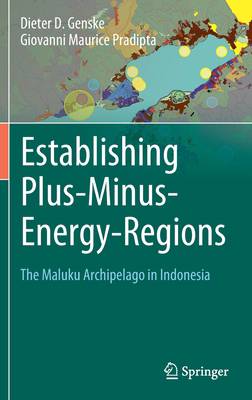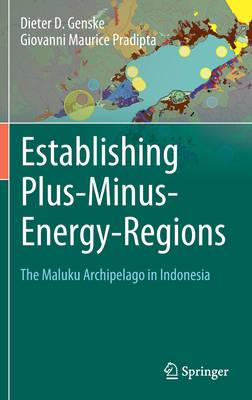
- Retrait gratuit dans votre magasin Club
- 7.000.000 titres dans notre catalogue
- Payer en toute sécurité
- Toujours un magasin près de chez vous
- Retrait gratuit dans votre magasin Club
- 7.000.000 titres dans notre catalogue
- Payer en toute sécurité
- Toujours un magasin près de chez vous
Establishing Plus-Minus-Energy-Regions
The Maluku Archipelago in Indonesia
Dieter D Genske, Giovanni Maurice PradiptaDescription
This book explains and illustrates how Indonesia as the largest and most populous country in Southeast Asia can become independent of fossil fuels by both reducing its energy needs and using renewable resources. A study presented in this work focuses on the Maluku Archipelago in eastern Indonesia with Ambon as its capital. Conventional energy is brought to the islands over long distances by partly simple means as boats, ships and aircrafts. This unsustainable situation calls for a decentralized renewable energy supply strategy.
The authors are convinced that the presented strategy illustrated on the Maluku Archipelago can be transferred to other regions of the world and that only by developing plus-minus regions the international 2°C climate goal can be achieved. The model region thus serves as proof that the plus-minus target can also be achieved in emerging countries with limited financial resources.
Spécifications
Parties prenantes
- Auteur(s) :
- Editeur:
Contenu
- Nombre de pages :
- 166
- Langue:
- Anglais
Caractéristiques
- EAN:
- 9783030935955
- Date de parution :
- 01-02-22
- Format:
- Livre relié
- Format numérique:
- Genaaid
- Dimensions :
- 156 mm x 234 mm
- Poids :
- 453 g







